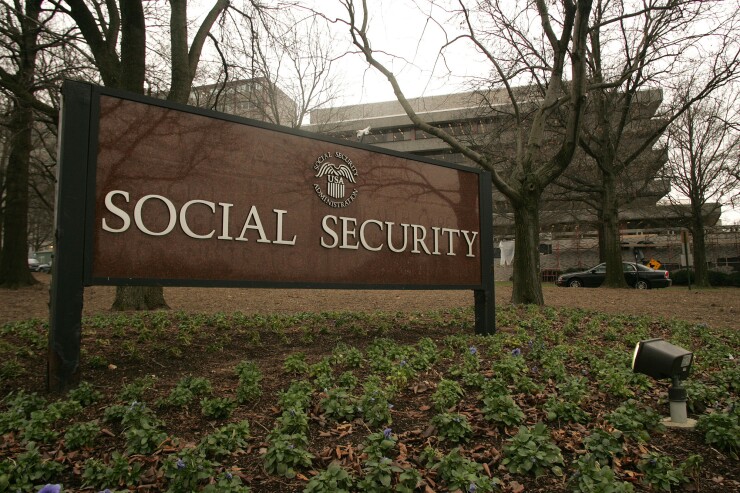Seeking relief from rising synthetic fraud, U.S. companies next year will be able to quickly verify whether Social Security numbers match other consumer data in government files, in a bid to thwart fraudsters from creating fake identities with stolen information and SSNs.
For Experian—one of 10 companies participating in the Social Security Administration’s pilot launching in June 2020—it’s a chance to help repair some of the damage synthetic identity fraud has wreaked on the payment industry, according to Kathleen Peters, senior vice president and head of fraud and identity at Experian North America.
“It won’t be a silver bullet, but it will go a long way toward deterring synthetic fraud by preventing fraudsters from opening new accounts with bogus combinations of SSNs and names,” Peters said.

Synthetic identity fraud has risen sharply in recent years, and some of the problem stems from
Creating an electronic database to verify that SSNs match the correct consumer data could also mute losses from the related problem of lenders unwittingly granting existing synthetic accounts fresh access to credit, Peters noted.
“One of the big areas of loss around synthetic account fraud is when one of these fake accounts gets approved for a credit extension. That’s a big source of bust-out fraud and a point where synthetic identity fraud could be stopped,” she said.
Experian is the only credit bureau among organizations participating in the pilot. Other companies that applied and the SSA approved include American Express, Capital One, Discover, Early Warning Services, Synchrony Financial, Navy Federal Credit Union, ID Analytics, SentiLink Corp and Computer Information Development.
The service doesn’t aim to verify a consumer’s identity. But when it rolls out widely in late 2020 or early 2021, banks and other lenders will be able to use the SSA’s new electronic Consent Based Social Security Verification (eCBSV) service to get fast, secure verification of whether a SSN matches SSA records, the SSA said in a recent press release.
The pilot came about from a provision in the
Fraudsters have been getting around that process by using actual SSNs combined with other names and information to create fake identities that successfully obtain credit, leading to huge losses financial institutions are absorbing.
Synthetic identity fraud also drives large losses for automotive lenders and entities making personal loans.
“Once a fraudster obtains a credit account, they typically work to make the account look legitimate by making some purchases and paying their bills, to establish a trade line,” Peters said.
The synthetic account usually masquerades as a legitimate account in good standing for a period of time—a few months to a year or more—before the fraudster suddenly runs up purchases to the maximum credit line and disappears, according to Peters.
Tracking synthetic identity fraud is tough because many banks don’t realize at first the charged-off account is based on a fake ID, she said.
“It looks like a typical account that’s been charged off by an actual consumer, and it’s sent to collections, so it can take quite a long time for the bank to realize there was never a real person attached to the account at all,” Peters explained.
The SSA already had a consent-based SSN verification service in place, but it is very laborious and time-consuming, requiring a paper-based signature from each consumer whose number is verified, according to Peters.
“The current approach can take weeks, because the documents can’t be faxed, scanned or emailed,” Peters said.
The SSA has been under pressure for years to come up with a better way of verifying consumer accounts, and working toward a solution has been difficult, because the agency’s primary role has been providing benefits, not verifying identities.
But in recent years as the SSA has been cast as a keeper of federal identity data, prompting Congress to expand the agency's role in verifying its own data with third parties.
Experian decided to get involved because the need for improved processes is so great, and collaborating with other companies and government seems like the best path forward, according to Peters.
“We realized there has been little guidance and no funding for the SSA’s initiative, so we wanted to step in and help,” Peters said, explaining why Experian applied to be part of the effort.





